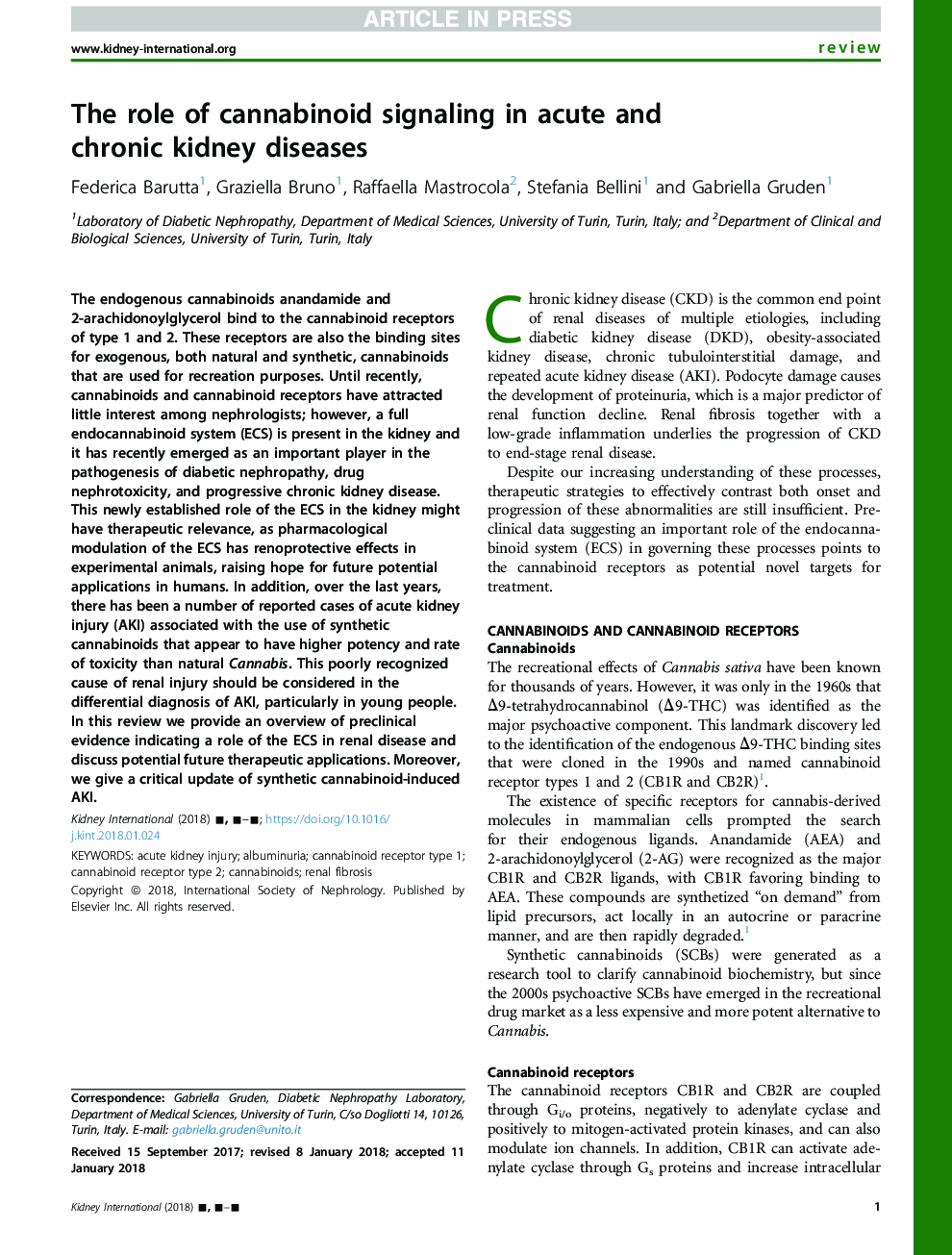| کد مقاله | کد نشریه | سال انتشار | مقاله انگلیسی | نسخه تمام متن |
|---|---|---|---|---|
| 8772525 | 1599136 | 2018 | 7 صفحه PDF | دانلود رایگان |
عنوان انگلیسی مقاله ISI
The role of cannabinoid signaling in acute and chronic kidney diseases
ترجمه فارسی عنوان
نقش سیگنال کانابینوئید در بیماری های کلیوی مزمن و حاد
دانلود مقاله + سفارش ترجمه
دانلود مقاله ISI انگلیسی
رایگان برای ایرانیان
کلمات کلیدی
آسیب حاد کلیه، آلبومینوری گیرنده کانابینوئید نوع 1، گیرنده کانابینوئید نوع 2، کانابینوئید، فیبروز کلیوی،
موضوعات مرتبط
علوم پزشکی و سلامت
پزشکی و دندانپزشکی
بیماریهای کلیوی
چکیده انگلیسی
The endogenous cannabinoids anandamide and 2-arachidonoylglycerol bind to the cannabinoid receptors of type 1 and 2. These receptors are also the binding sites for exogenous, both natural and synthetic, cannabinoids that are used for recreation purposes. Until recently, cannabinoids and cannabinoid receptors have attracted little interest among nephrologists; however, a full endocannabinoid system (ECS) is present in the kidney and it has recently emerged as an important player in the pathogenesis of diabetic nephropathy, drug nephrotoxicity, and progressive chronic kidney disease. This newly established role of the ECS in the kidney might have therapeutic relevance, as pharmacological modulation of the ECS has renoprotective effects in experimental animals, raising hope for future potential applications in humans. In addition, over the last years, there has been a number of reported cases of acute kidney injury (AKI) associated with the use of synthetic cannabinoids that appear to have higher potency and rate of toxicity than natural Cannabis. This poorly recognized cause of renal injury should be considered in the differential diagnosis of AKI, particularly in young people. In this review we provide an overview of preclinical evidence indicating a role of the ECS in renal disease and discuss potential future therapeutic applications. Moreover, we give a critical update of synthetic cannabinoid-induced AKI.
ناشر
Database: Elsevier - ScienceDirect (ساینس دایرکت)
Journal: Kidney International - Volume 94, Issue 2, August 2018, Pages 252-258
Journal: Kidney International - Volume 94, Issue 2, August 2018, Pages 252-258
نویسندگان
Federica Barutta, Graziella Bruno, Raffaella Mastrocola, Stefania Bellini, Gabriella Gruden,
